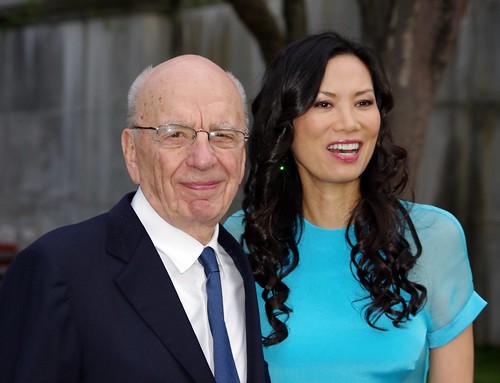 Part 2: Having lawyers that are fully committed to settlement creates better outcomes.
Part 2: Having lawyers that are fully committed to settlement creates better outcomes.
A Collaborative Divorce is one in which the husband and the wife each retain a lawyer for settlement purposes only.
Hiring a lawyer for this defined purpose has some risk. The success of Collaborative Divorce is based on the fact that, in most cases, the benefits far outweigh the risks. In order to understand why this is true, let’s look at the basic risks and benefits.
Risk: At the beginning of the case, both parties and their lawyers sign a Collaborative Commitment stating that the lawyers must withdraw if either spouse decides to fight in court. Therefore, the Collaborative Commitment creates a risk that you will need to switch attorneys during the divorce process. Indeed, that is the very idea behind the commitment.
How significant is the risk? In my experience of around 500 Collaborative Cases, the parties have had to switch attorneys approximately 5% of the time. By comparison, in my experience practicing in the traditional model (cases where the lawyers can go to court), the parties switched attorneys, or the attorneys withdrew from representation for other reasons, almost 5% of the time. So, in reality, the risk that clients need to switch attorneys by starting in the Collaborative Process may not be significantly greater than in a non-Collaborative case.
Benefits: The most significant benefit from the Collaborative Commitment is that the attorneys are free to focus all of their attention on more creative settlements. Removing, or at least significantly diminishing, the threat of court, opens the door to
interest-based negotiation. Instead of using argument, accusation and threats of court, which are taken off the table, the attorneys advocate for their clients by using creativity, empathy and the development of shared goals.
What clients seem to want, in almost all instances, is a form of advocacy (meaning protection of true interests), without creating animosity. In traditional practice, I sometimes felt like a bull in a china shop, unable to go in and help my client get what he or she truly needed, without risking damage to fragile, but important, things like the ability to co-parent and communicate effectively. Collaborative Divorce, by removing court as an immediate threat, allows me work to help my clients with far less risk to the relationship and other intangible goals.
Of course, the success of Collaborative Divorce can depend on more than just the Collaborative Commitment. Specifically, the best outcomes in Collaborative Divorce are achieved with a) a high level of commitment by the clients and 2) the skill of the professionals. The keys to success in those areas will be discussed in the next two blogs in this series. For immediate information in these areas go to
www.collaborativelaw.org or www.divorcechoice.com.
Check out Part 3 of this series, here.
 “If you want to make peace with your enemy, you have to work with your enemy. Then he becomes your partner.”-Nelson Mandela
If you are going through a divorce, it might feel like your spouse is the enemy and you really are at war. However, we can all learn much from Nelson Mandela, who passed away yesterday at the age of 95. Mr. Mandela was a lawyer, activist and peacemaker; and although he was a global figure, we can apply his lessons to divorce and conflict at home.
If one spouse files for a traditional divorce through the court, the couple (and their children) embark on a journey, some clients describe, to complete hell. If they are able to return to this world, so to speak, the family unit is forever transformed, and not for the better. Spouses, who once loved one another, often do become enemies. The court process, particularly if custody over the children is an issue, often vilifies one parent and an all-out war breaks out.
So, what’s the answer? Simple. Work with your spouse. Even if you DO see your spouse as the enemy, try to stay out of court. Judges don’t want to see you. It’s not that they don’t care, it’s that they don’t want to decide where YOUR children should live. They don’t want to decide how to divide YOUR property. Stop and think about that. Do you want a stranger to make life altering decisions for you?
You and your spouse should (and can) make those decisions. But you need a divorce process that will allow you to make the best choices, and you need attorneys and other professionals who can guide you to a better outcome. You will have to compromise. But if you work with your spouse, you can become partners in restructuring your family and arrive at a peaceful resolution. You will both “win” and make peace in the end.
Wouldn’t Mr. Mandela be happy to know that? Wouldn’t he be glad to hear that the Collaborative Process focuses on solutions everyone can live with? I would think so.
“If you want to make peace with your enemy, you have to work with your enemy. Then he becomes your partner.”-Nelson Mandela
If you are going through a divorce, it might feel like your spouse is the enemy and you really are at war. However, we can all learn much from Nelson Mandela, who passed away yesterday at the age of 95. Mr. Mandela was a lawyer, activist and peacemaker; and although he was a global figure, we can apply his lessons to divorce and conflict at home.
If one spouse files for a traditional divorce through the court, the couple (and their children) embark on a journey, some clients describe, to complete hell. If they are able to return to this world, so to speak, the family unit is forever transformed, and not for the better. Spouses, who once loved one another, often do become enemies. The court process, particularly if custody over the children is an issue, often vilifies one parent and an all-out war breaks out.
So, what’s the answer? Simple. Work with your spouse. Even if you DO see your spouse as the enemy, try to stay out of court. Judges don’t want to see you. It’s not that they don’t care, it’s that they don’t want to decide where YOUR children should live. They don’t want to decide how to divide YOUR property. Stop and think about that. Do you want a stranger to make life altering decisions for you?
You and your spouse should (and can) make those decisions. But you need a divorce process that will allow you to make the best choices, and you need attorneys and other professionals who can guide you to a better outcome. You will have to compromise. But if you work with your spouse, you can become partners in restructuring your family and arrive at a peaceful resolution. You will both “win” and make peace in the end.
Wouldn’t Mr. Mandela be happy to know that? Wouldn’t he be glad to hear that the Collaborative Process focuses on solutions everyone can live with? I would think so.  “If you want to make peace with your enemy, you have to work with your enemy. Then he becomes your partner.”-Nelson Mandela
If you are going through a divorce, it might feel like your spouse is the enemy and you really are at war. However, we can all learn much from Nelson Mandela, who passed away yesterday at the age of 95. Mr. Mandela was a lawyer, activist and peacemaker; and although he was a global figure, we can apply his lessons to divorce and conflict at home.
If one spouse files for a traditional divorce through the court, the couple (and their children) embark on a journey, some clients describe, to complete hell. If they are able to return to this world, so to speak, the family unit is forever transformed, and not for the better. Spouses, who once loved one another, often do become enemies. The court process, particularly if custody over the children is an issue, often vilifies one parent and an all-out war breaks out.
So, what’s the answer? Simple. Work with your spouse. Even if you DO see your spouse as the enemy, try to stay out of court. Judges don’t want to see you. It’s not that they don’t care, it’s that they don’t want to decide where YOUR children should live. They don’t want to decide how to divide YOUR property. Stop and think about that. Do you want a stranger to make life altering decisions for you?
You and your spouse should (and can) make those decisions. But you need a divorce process that will allow you to make the best choices, and you need attorneys and other professionals who can guide you to a better outcome. You will have to compromise. But if you work with your spouse, you can become partners in restructuring your family and arrive at a peaceful resolution. You will both “win” and make peace in the end.
Wouldn’t Mr. Mandela be happy to know that? Wouldn’t he be glad to hear that the Collaborative Process focuses on solutions everyone can live with? I would think so.
“If you want to make peace with your enemy, you have to work with your enemy. Then he becomes your partner.”-Nelson Mandela
If you are going through a divorce, it might feel like your spouse is the enemy and you really are at war. However, we can all learn much from Nelson Mandela, who passed away yesterday at the age of 95. Mr. Mandela was a lawyer, activist and peacemaker; and although he was a global figure, we can apply his lessons to divorce and conflict at home.
If one spouse files for a traditional divorce through the court, the couple (and their children) embark on a journey, some clients describe, to complete hell. If they are able to return to this world, so to speak, the family unit is forever transformed, and not for the better. Spouses, who once loved one another, often do become enemies. The court process, particularly if custody over the children is an issue, often vilifies one parent and an all-out war breaks out.
So, what’s the answer? Simple. Work with your spouse. Even if you DO see your spouse as the enemy, try to stay out of court. Judges don’t want to see you. It’s not that they don’t care, it’s that they don’t want to decide where YOUR children should live. They don’t want to decide how to divide YOUR property. Stop and think about that. Do you want a stranger to make life altering decisions for you?
You and your spouse should (and can) make those decisions. But you need a divorce process that will allow you to make the best choices, and you need attorneys and other professionals who can guide you to a better outcome. You will have to compromise. But if you work with your spouse, you can become partners in restructuring your family and arrive at a peaceful resolution. You will both “win” and make peace in the end.
Wouldn’t Mr. Mandela be happy to know that? Wouldn’t he be glad to hear that the Collaborative Process focuses on solutions everyone can live with? I would think so. 




